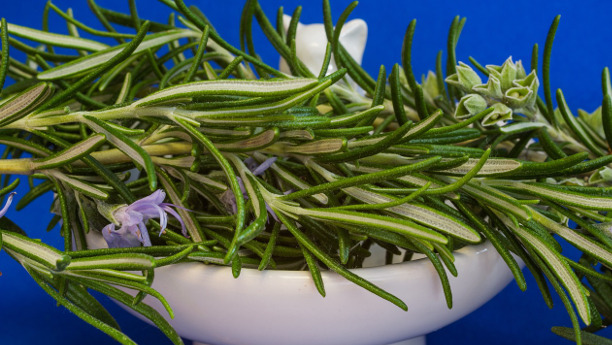Biotech yeast produces complex plant material
Carnosic acid is a widely sought-after substance that is used to enhance the flavour of foods and make them keep longer. To date, the substance must laboriously be extracted from herbs such as rosemary.

Now bio-engineers from Halle have found a way of manufacturing carnosic acid using biotechnology. As the team reports in the scientific journal 'Nature Communications', they do that by using reprogrammed yeast as a cell factory. With its powerful aroma, rosemary counts as one of the most popular kitchen herbs. The cause of the distinctive taste is the vegetable substance carnosic acid. It is also found in sage leaves. But carnosic acid is not only in demand as a flavourer. The vegetable-based substance is also used as a natural anti-oxidation agent, especially in meat products, oils, fats, sauces and animal fodder, to make products keep longer. The pharmaceuticals industry also uses it as the basis for bio-active substances that are effective against inflammation, cancer and neurodegenerative diseases.
All these uses are making carnosic acid increasingly sought-after throughout the world. However, up to now the substance has been extracted from dried rosemary and sage leaves, and the yield is low. In order to be able to use this anti-oxidation agent on an industrial scale, large quantities of the popular kitchen herbs would be needed. Scientists from the Leibniz Institute of Plant Biochemistry (IPB) have now found a solution for this problem.
Yeast cells as micro-reactors
As the team led by the plant researcher Alain Tissier from Halle reported in the journal Nature Communications, it has proved possible to manufacture the anti-oxidation agent by bio-technological means. The process involves yeasts as cell factories. However, the initial task for the researchers was to unravel the mechanism by which carnosic acid is bio-synthesized in the plant.
The last enzyme in the plant bio-synthesis process identified
During the study, the team literally discovered the last piece of a puzzle. For the bio-synthesis of carnosic acid in the plant proceeds in several reaction stages, each of which is catalysed by means of various enzymes. As the Leibniz researchers from Halle report, they have now found the enzyme, hitherto unknown, that catalyses the very last stage of the reaction chain. At the same time, they also discovered a previously unknown intermediate product as well as new enzymes. Having completed the reaction chain, the team was able to introduce the genes that code for the corresponding enzymes into yeast cells. This meant that the yeast's metabolism could be reprogrammed so that the cells started to manufacture carnosic acid. With this achievement, the plant researchers from Halle have mastered the first step towards the bio-technological production of the anti-oxidation agent carnosic acid. This technique will then be unaffected by factors such as climate change, soil quality and harvest yields.


